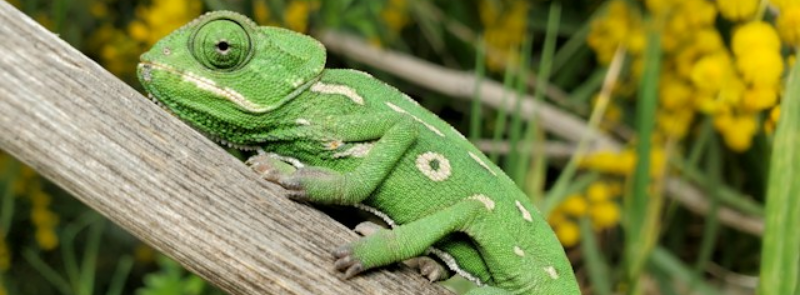
When It Occurs
Every October 21st
Timeline
Days Passed (855)
# Hashtags
#NationalReptileAwarenessDay #WildlifeLove
Every October 21st marks National Reptile Awareness Day, not just for reptile enthusiasts to rejoice, but also to promote education, conservation, and admiration for these creatures. It's a day to delve into their natural habitats and understand the environmental challenges they encounter.
History
- Origins: The National Reptile Awareness Day has become a significant event for herpetologists, conservationists, and reptile enthusiasts. It is recognized as a time to celebrate and learn more about these fascinating creatures.
- Growth: Over the years, National Reptile Awareness Day has gained popularity, with zoos, wildlife organizations, and educational institutions participating in events and activities to highlight the importance of reptiles.
Significance
National Reptile Awareness Day holds significant importance for several reasons:
- Conservation Awareness: It emphasizes the need for conservation efforts to protect reptile species and their habitats from threats such as habitat destruction, climate change, and illegal wildlife trade.
- Education: It provides an opportunity to educate the public about the role of reptiles in ecosystems, their behaviors, and their unique adaptations.
- Appreciation of Biodiversity: It fosters an appreciation for the diversity of reptile species and the ecological roles they play.
Ways to Celebrate
-
Visit a Zoo or Reptile Sanctuary:
- Learn and Explore: Spend the day visiting a local zoo, reptile house, or sanctuary to learn more about different reptile species and their habitats.
- Guided Tours: Participate in guided tours or educational programs that focus on reptiles and their conservation.
-
Educational Activities:
- Workshops and Lectures: Attend workshops, seminars, or lectures on reptile conservation, biology, and ecology.
- Classroom Activities: Teachers can incorporate lessons on reptiles into their curriculum, using interactive activities such as creating reptile habitats or researching different species.
-
Support Conservation Efforts:
- Donate: Contribute to organizations that focus on reptile conservation, such as the World Wildlife Fund, The Nature Conservancy, or local wildlife rescue centers.
- Volunteer: Offer your time to volunteer at wildlife organizations, zoos, or conservation projects that protect reptile habitats and species.
-
Create a Reptile-Friendly Environment:
- Habitat Preservation: If you have a garden or outdoor space, create a reptile-friendly environment by providing shelter, water, and appropriate vegetation.
- Avoid Pesticides: Refrain from using harmful pesticides that can negatively impact reptiles and their prey.
-
Raise Awareness:
- Social Media: Use social media platforms to share interesting facts, photos, and information about reptiles. Use hashtags like #ReptileAwarenessDay and #ProtectReptiles to reach a broader audience.
- Community Events: Organize or participate in community events such as reptile shows, awareness campaigns, or clean-up drives to protect local reptile habitats.
-
Responsible Pet Ownership:
- Research: If you are considering a reptile as a pet, thoroughly research the species to understand its needs and ensure you can provide proper care.
- Adoption: Consider adopting a reptile from a rescue organization rather than purchasing one from a pet store.
Interesting Facts About Reptiles
- Diverse Group: Reptiles include a diverse group of animals such as snakes, lizards, turtles, tortoises, and crocodiles. There are over 10,000 species of reptiles worldwide.
- Ancient Creatures: Reptiles have been around for over 300 million years, with some species like turtles and crocodiles having ancient lineages dating back to the time of the dinosaurs.
- Adaptations: Reptiles have unique adaptations such as ectothermy (relying on external heat sources to regulate body temperature), scales for protection and moisture retention, and the ability to regenerate lost tails (in some lizard species).
Threats to Reptiles
- Habitat Destruction: Urbanization, deforestation, and agricultural expansion lead to the loss of natural habitats, affecting reptile populations.
- Climate Change: Changes in temperature and weather patterns impact reptiles' ability to regulate their body temperature and reproduce.
- Illegal Wildlife Trade: The illegal collection and trade of reptiles for the pet industry or traditional medicine pose significant threats to wild populations.
- Pollution: Pollution of land and water bodies affects reptiles directly and indirectly by contaminating their food sources.
Notable Reptile Conservation Organizations
- World Wildlife Fund (WWF): Focuses on global conservation efforts, including the protection of reptiles and their habitats.
- The Nature Conservancy: Works on preserving natural habitats that are crucial for the survival of reptile species.
- International Union for Conservation of Nature (IUCN): Provides assessments and data on the conservation status of reptile species through the IUCN Red List.
Conclusion
National Reptile Awareness Day is a significant observance that highlights the importance of reptiles in our ecosystems and the need for their conservation. By visiting zoos, participating in educational activities, supporting conservation efforts, and raising awareness, individuals can contribute to the protection and appreciation of these fascinating creatures. This day serves as a reminder of the ecological value of reptiles and the ongoing efforts required to ensure their survival.


